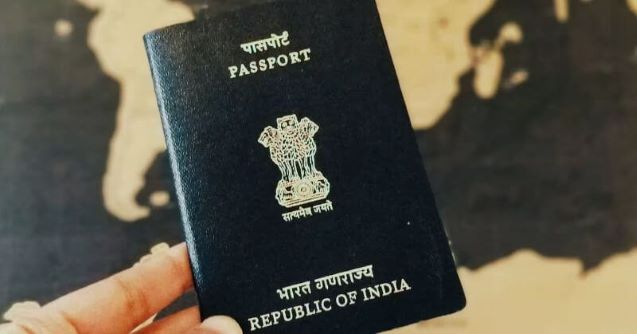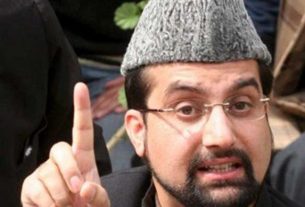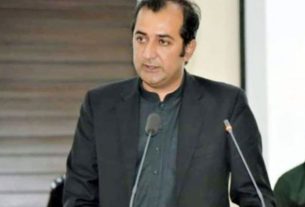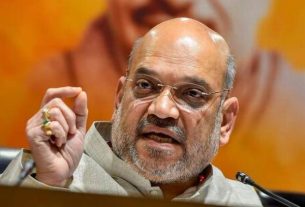The Indian government has suspended the passports of several Kashmiris, including journalists, in what observers describe as an unprecedented move to stifle dissent in the region.
Several Kashmiris living either in Indian-controlled Kashmir or overseas told Middle East Eye that they have received emails from the Indian government, over the past 10 days, notifying them that their passports had been suspended.
The regional passport office in Srinagar referred to Section 10(3) of The Passports Act, 1967, with the claim that the affected parties were a threat to Indian security.
However, those impacted told MEE that there were no outstanding charges against them.
Sources told MEE that at least 10 people, including Kashmiri academics, students and journalists, in Indian-controlled Kashmir and abroad, had received notices within the past two weeks.
They said that they expect around 70-90 people to lose their passports, if not more.
With most recipients of the emails unwilling to speak publicly on the record, fearing further reprisals from the state, and the foreign ministry remaining tightlipped, MEE is unable to independently verify the scale of the operation.
Earlier on Tuesday, Srinagar passport officer Devinder Singh told the Indian publication The Wire that they received “instructions to suspend the passports of dozens of persons, but I can’t disclose the exact number”.
Singh added that some of those on the list had been contacted “about the action being taken”.
According to the emails seen by MEE, those contacted were told to hand over their documents or face unspecified consequences.
Neither the spokesperson for the Indian foreign ministry nor the central passport organisation replied to MEE’s request for comment and clarification.
The Indian embassy in Washington DC also did not reply to MEE’s request for comment.
Kashmiris in diaspora
For those Kashmiris living outside of India, the developments back in Indian-controlled Kashmir have hit them hard.
Several Kashmiri journalists have found themselves in exile due to the shrinking space for critical reportage back home and the threat of harassment by the Indian authorities.
One Kashmiri student living outside India, who received an email last week notifying him that his passport had been revoked, told MEE that his situation was now impossible to resolve.
“It means an end to my studies and arrest and torture if I return back this time,” the student, who asked not to be named for fear of reprisal, said.
The student, who suspects that it was his occasional journalism that had landed him in trouble with the authorities, said that it’s unclear what his status would be once his travel documents expired.
The revocation of passports comes following other mechanisms, observers note, designed to both discourage and punish dissent.
Over the past year, hundreds of Kashmiris have also faced immense delays in receiving passports, with those with family ties to activism or active dissidents denied passports on account of “security reasons”.
The move is part of a larger attempt to reshape the political environment in Kashmir since Narendra Modi’s government revoked Article 370A and Article 35A, which stripped Jammu and Kashmir’s semi-autonomous status.
In August 2019, the Indian government imposed a communication blockade and arrested thousands of Kashmiris as the region’s status changed overnight.
Observers note that since the revocation of Article 370 and Article 35A, civil society in Kashmir has effectively been dismantled while journalists have been locked in an endless cycle of intimidation and harassment, forcing many to abandon their careers.
Meanwhile, journalists and activists have increasingly found themselves on no-fly lists, most notably Pulitzer Prize-winning photographer Sanna Irshad Mattoo and Zahid Rafiq, a former journalist who had written for outlets such as Al Jazeera English and The Hindu.
Since 2019, foreign correspondents are also no longer allowed to report from Kashmir without receiving explicit permission from Delhi, which has become close to impossible to obtain, according to journalists.
Beh Lih Yi, head of the Committee to Protect Journalists (CPJ) Asia programme, told MEE that her organisation has documented how the Modi government has used preventative detention, accusations of terrorism, raids, and interrogations in retaliation for journalists’ work since 2019.
“We are investigating disturbing reports that the Indian government has suspended the passports of Kashmiri journalists, leaving them vulnerable to further reprisal through yet another act of systematic and draconian repression,” Lih Yi said.
“CPJ has previously documented travel bans on Kashmiri journalists reporting on rights violations and government abuse of power,” Lih Yi added.
One of the world’s most militarised zones
One Kashmiri journalist, now living outside of the country and too frightened to visit home for several years, told MEE that journalism in Kashmir over the past four years had become untenable.
“Local journalists are being summoned and being asked to divulge who their editors are and asking to see the edits being made and who is making them and what changes are being made,” the journalist, who asked to remain anonymous, said.
“They are summoning local journalists who are freelancers and asking them for their phones and they spend hours going through emails and seeing which editors they are talking to.
“I know Kashmiris who haven’t been home for three to five years because they are afraid they will not be able to leave again once they go back,” the journalist said.
In September 2022, Amnesty International said the Indian government was targeting all credible, independent sources of information on Jammu and Kashmir.
“There is a silence achieved on all dissent through heavy-handed repression which has spread fear and uncertainty in the region,” Amnesty International said at a briefing.
Lih Yi said from the CPJ says there seems to be very little appetite to raise India’s assault on press freedom.
Ahead of Indian PM Narendra Modi’s visit to the White House in June, the CPJ released a statement calling on the Biden administration to raise questions over India’s continued assault on press freedom.
“Unfortunately, it does not appear that press freedom was at the center of discussions,” Lih Yi said.
“The United States has made defense a cornerstone of its relationship with India. Yet, the international community has very limited access to information on Kashmir, one of the world’s most heavily militarised zones,” Lih Yi added.__Pakistan Today





